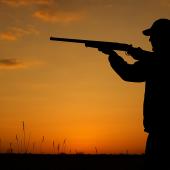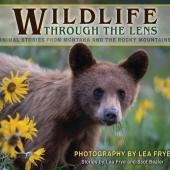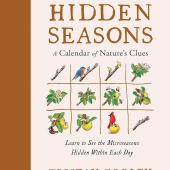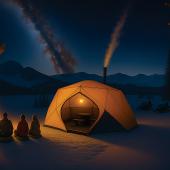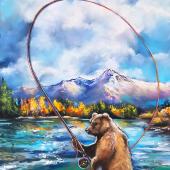Wordsmiths of Southwest Montana: Mike Finkel
Sitting down with author Mike Finkel.
Mike Finkel shunned the typical path taken by his fellow University of Pennsylvania graduates and became an outdoor writer. His first story won him a free ski trip out West, and he’s been here ever since. His work has since appeared in Outside, Men's Journal, Sports Illustrated, National Geographic Adventure, and a host of other national magazines. Despite his appearance on an episode of Sale of the Century in 1988, he is far more famous for getting fired from The New York Times for fabricating parts of a 2002 story about African child labor, and then learning shortly thereafter that a murderer in Oregon had assumed his identity and had been hiding out in Mexico. Finkel tracked down the killer, and his last book, True Story, is about that search and the lessons in honesty they both learned.
What’s one of your favorite words?
I'm a fan of the Yiddishisms that have wormed into the English language, especially the semi-swear words— schtup, schlong, schmuck, schmo (just to name the "sch"-sounding ones). My maternal grandparents spoke Yiddish at home, so I grew up hearing the language, and of course gravitated to the swear words. It's much more fun to curse in Yiddish than English.
How does living in Montana influence your writing?
I tend not to write about Montana very often, but I'm profoundly influenced by it. The somewhat quiet pace of life here (at least as opposed to major cities) allows me to focus on my work, rather than being constantly distracted. Also, there's nothing like a powder day at Bridger Bowl to fill my athletic needs, allowing me to exhaust my body and use my brain.
What areas of Montana in particular inspire you?
Quite simply: the mountains.
What changes, if any, have you seen in your time living here?
I've lived in Bozeman for 13 years, so I've watched the valley grow. I remember when north 19th Street was a dirt road, when Babcock and Mendenhall went two ways and the road to Four Corners was two lanes. I still refer to North 19th Street as "Denver"—as in, I'll say to my wife, "Baby, I'm off to Denver to get a new phone at Radio Shack."
What’s your best piece of work and your worst piece of work?
I'm always hoping that my next piece will be my best. A false hope, 99% of the time, but it keeps me writing. I've written more than 200 magazine articles; many of them, quite simply, suck. I really don't want to wade through that Port-a-Potty of prose to find the worst. Come to think of it, that last sentence, with its unfortunate metaphor, may be the worst I've ever written.
What type of writing appeals to you the most?
I write nonfiction, but I really enjoy reading modern fiction—I'm a fan of people like David Foster Wallace, Lorrie Moore, Cormac McCarthy, Nicole Krauss, Peter Carey, JM Coetzee, Paul Auster, Alice Munro, Haruki Murakami, and Bozeman's own Greg Keeler.
What works of other artists inspire you?
Pablo Picasso inspires me.
What type of art in particular, outside of writing, do you find the
most profound?
Painting, theater, photography, sculpture, and the artistry (however brutal) inherent in many sports, especially hockey.
What responsibilities do you feel you have to your readers?
I feel the need to hold their attention—not to take their time for granted. I come from the short-attention-span generation and realize that writers aren't simply competing with other writers; we're competing with television, film, video games, and music.
What is the biggest challenge in your writing career?
Every time—writing that first sentence.
What is your daily writing regimen?
It varies. But I love the Emerson Cultural Center, where I've had an office for more than a decade. The sound of people trodding the creaky floorboards is essential to my ability to produce prose.
Were you a bookworm as a kid?
Absolutely. My mom was once called in to my middle school because I wasn't paying attention in class; I was sitting in the back, reading books (sci-fi, mystery, anything). "Your son reads too much," she was told. That cracked her up—of all the problems for a student to have!
What are your main hobbies/avocations?
Skiing, hockey, mountaineering, mountain biking.
What profession other than writing would you like to participate in, and why?
I've always been amazed by the people in Doctors Without Borders. I suppose I'd want to be a physician, tending to the needs of less-advantaged peoples.
In general, which do you prefer as a means of communication from the outside world: TV, newspapers, or the internet?
Magazines. I subscribe to about 25 of them (no kidding). It's a strange day, or a Sunday, when I don't get a publication in my mailbox.
BOOKS BY MIKE FINKEL
True Story (2005)
Alpine Circus (1999)









